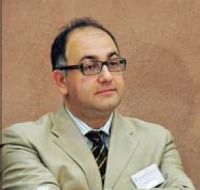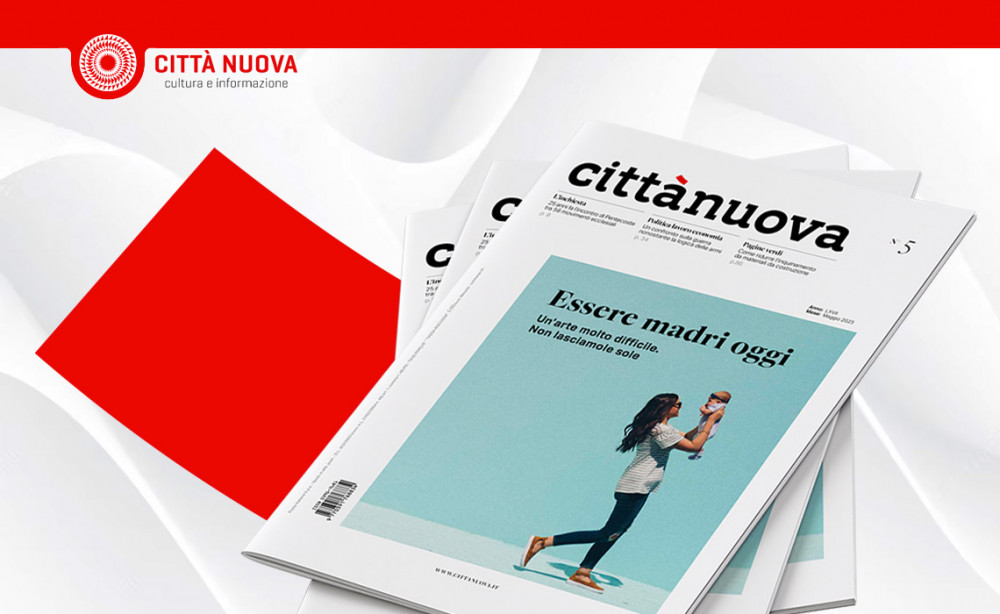The entrepreneur from Brescia who paid school taxes for children who could not has been both praised and harshly criticized. What is the value of gratuitousness within a community? Three questions to economist Luigino Bruni.
By Chiara Andreola
Publishing on cittanuova.it on 16/04/2010
 At first, the Strali had arrived at the mayor´s office in Adro (Brescia), who had decided that children whose families had not settled accounts would not be allowed to eat the school lunch. Then, when an (initially) anonymous entrepreneur paid the debt so that these faultless children would not go with an empty stomach, the author of this magnificant gesture fell under a barrage of fire. People said that it is too easy these days for someone who wants to be clever to take advantage of others´generosity. Nearly 200 families had announced that they would not pay the school tax as a sign of protest. Plus, the mayor declared to the Corriera della Sera that Silvano Lancini - the name of the entrepreneur - had made a "political act", made to favor the opposition. Whether authentic generosity or a calculated move, this episode centers on the value and role of gratuitousness in the context of citizenship. We spoke with Luigino Bruni, professor of economy at the university of Milano-Bicocca and author of a book written specifically on this topic (The Price of Gratuitousness, Cittá Nuova).
At first, the Strali had arrived at the mayor´s office in Adro (Brescia), who had decided that children whose families had not settled accounts would not be allowed to eat the school lunch. Then, when an (initially) anonymous entrepreneur paid the debt so that these faultless children would not go with an empty stomach, the author of this magnificant gesture fell under a barrage of fire. People said that it is too easy these days for someone who wants to be clever to take advantage of others´generosity. Nearly 200 families had announced that they would not pay the school tax as a sign of protest. Plus, the mayor declared to the Corriera della Sera that Silvano Lancini - the name of the entrepreneur - had made a "political act", made to favor the opposition. Whether authentic generosity or a calculated move, this episode centers on the value and role of gratuitousness in the context of citizenship. We spoke with Luigino Bruni, professor of economy at the university of Milano-Bicocca and author of a book written specifically on this topic (The Price of Gratuitousness, Cittá Nuova).
As soon as the name of the benefactor was revealed, a number of assumptions were formed on which other interests could hide: why do we struggle to understand a gratuitous act?
"Market ethos is so centered around the principle of personal interest, as transpires from textbooks and management schools who form the leader class, that even an altruistic act ends up in this logic and becomes "scrutinized". But we must also say that this is a reaction to the idea of charity that hids relationships of power. The munus, or gift, has been part of common life for millenium, but in some cases it was an expression of control. Even Seneca affirmed that, if he who benefits is not able to respond to the gift of the benefactor, he ends up hating him, because he remembers his dependance every day. Therefore, there is need to create the conditions for the existence of a culture of gratuitousness. Civil economy and the economy of communion go in this direction."
How does gratuitousness distinguish itself from charity?
"Gratuitousness is rooted in reciprocity. It is a process that begins, as with a donation, but then develops and lasts over time within the community. It´s not only the act of a person. In this sense, European culture is different than American culture, where it is considered normal that an entrepreneur make consistent donations. Not being used to the philanthropic model, but to the communitarian model, we (in Europe) do not have the idea that it´s the individual that provides from his own wallet a task that we attribute to the state or the community. And it is in the community that reciprocity can be fully expressed, because it is not simply charity but a model of relationships. Poverty itself is a relationship, not a status."
One of the reasons why the Brescian entrepreneur was critized is the risk that he took advantage of who, although able, did not pay the lunch fee. Does gratuitousness have limits?
"The act of generosity is fragil by nature and exposed to opportunism. Risk is inevitable, but it is not a good reason to not to take it. Building communities of solidarity for more sustainable dynamics works also as a guarantee in this sense, because once the process of gratuitousness has been inserted into the communitarian dimension there can also be controls for it."







